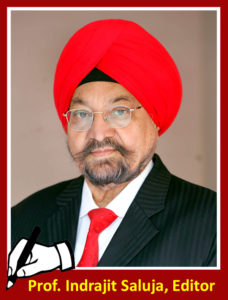
As India commemorates its 75th Republic Day, it is a momentous occasion to reflect on the incredible journey the nation has undertaken since gaining independence in 1947. The last seven and a half decades have witnessed remarkable progress, from overcoming social and communal divisions to tackling issues of illiteracy and poverty. The country, once burdened with the legacies of foreign rule, has emerged as a global player on various fronts.
In the initial years of the Republic, visionary leaders such as Jawaharlal Nehru played a pivotal role in steering the nation towards stability and growth. Nehru’s leadership during the first 15 years set the tone for India’s commitment to democracy and secularism. Despite facing internal socio-economic challenges and strained relations with neighboring Pakistan, and later, China, Nehru’s statesmanship laid the foundation for a resilient and united India.
Fast forward to the present, and India finds itself at a critical juncture. Over the past decade, under the leadership of Prime Minister Narendra Modi, the country has experienced rapid economic growth, earning the distinction of having the fastest-growing economy globally. The nation is poised to become the third-largest economy in the world within the next two decades. While these economic strides are commendable, concerns linger regarding the equitable distribution of the benefits of this growth.
Reports suggest that the economic boom has disproportionately favored the wealthy, leaving the vast majority of the population, especially in rural areas, mired in poverty. The current policies seem to shower privileges on the affluent while neglecting the needs of farmers, workers, and ordinary citizens. This growing economic divide threatens to undermine the social fabric of the nation.
The communal politics employed by the ruling Bharatiya Janata Party (BJP) is another cause for concern. India, known for its diversity and pluralism, has witnessed a rise in tensions fueled by religious and communal divides. The emphasis on majoritarianism rather than inclusivity challenges the unity and brotherhood that have been the pillars of India’s strength. A nation with over a billion people, facing internal strife, could potentially become a destabilizing force with far-reaching implications for global peace.
On this auspicious day of celebration, it becomes imperative to engage in introspection and address the challenges that threaten to hinder India’s progress. While economic growth is essential, it must be inclusive, reaching every stratum of society. The government’s policies should prioritize the upliftment of the rural masses, ensuring that the benefits of progress extend to the marginalized and vulnerable.
Furthermore, the importance of secularism cannot be overstated. India’s history is replete with examples of harmonious coexistence among diverse communities. The shift towards divisive politics erodes the very essence of the nation and risks alienating sections of the population. A united India is not only crucial for its citizens but also for the stability of the global community.
As we wish India a Happy Republic Day, it is essential to acknowledge the achievements and progress made over the past 75 years. Simultaneously, it is incumbent upon the nation’s leaders and citizens to address the existing challenges and work towards fostering a more inclusive, equitable, and harmonious society.
The 75th Republic Day should serve as a catalyst for positive a change, inspiring a collective commitment to building a stronger, more united India that embraces its diversity and upholds the values of democracy and secularism. Only through such efforts can India continue to shine as a beacon of hope and progress on the global stage.





Be the first to comment